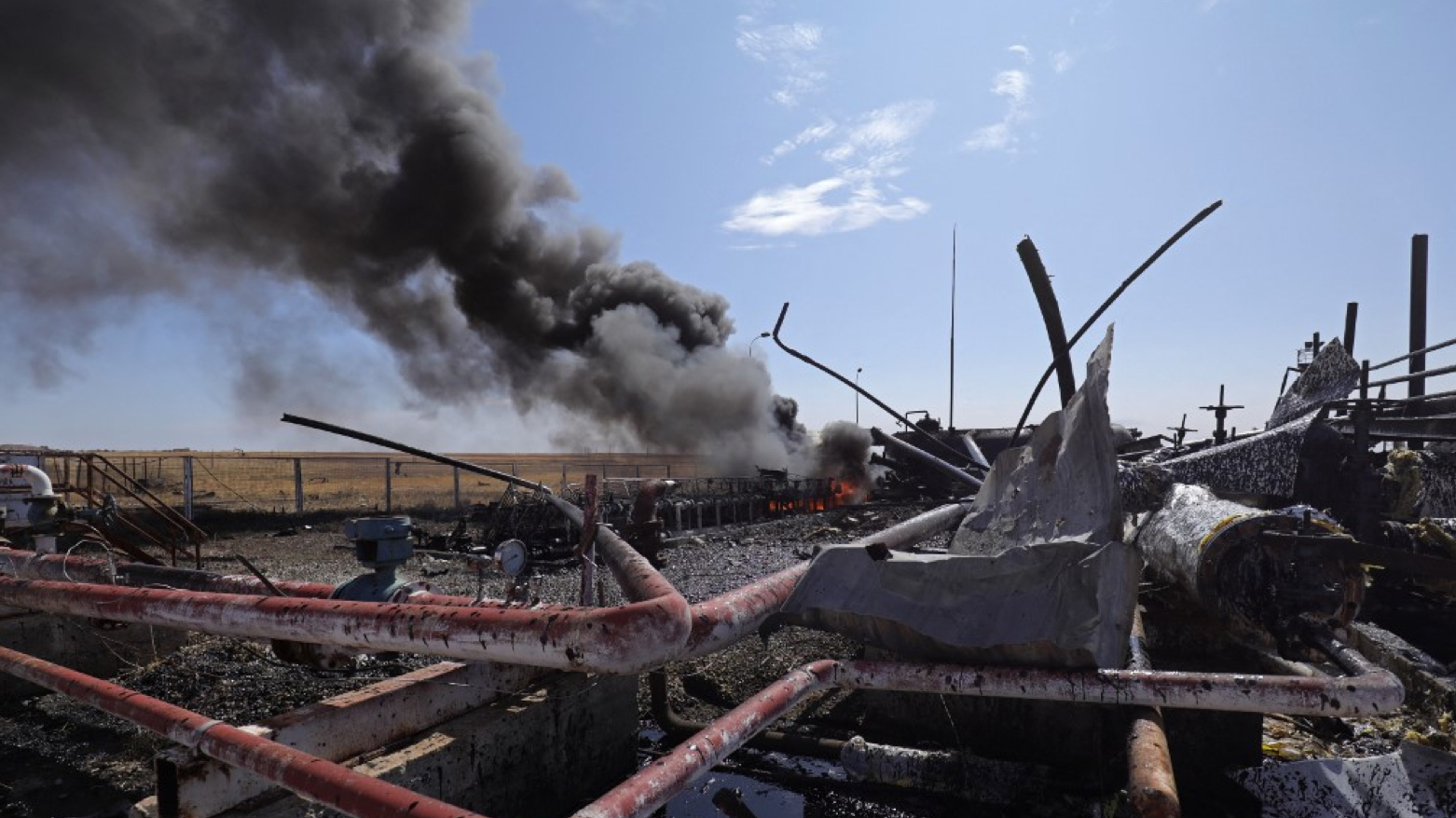US-based multi-faith network letter calls on Biden administration to stop Turkish attacks in northeast Syria
The IRF Community asked the US Government to use all available mechanisms to stop Turkey's continued attacks on Northeast Syria.

ERBIL (Kurdistan24) – The US-based International Religious Freedom (IRF) Roundtable, a multi-faith network of organizations and individuals advocating for freedom of religion or belief, on Thursday circulated a letter on Thursday called on US President Joe Biden and US Secretary of State Antony Blinken to stop Turkish attacks in northeast Syria.
The members of the IRF Community asked “the U.S. Government to use all available mechanisms to stop Turkey's continued attacks on Northeast Syria and the multi-religious, multi-ethnic society they have created.”
They also called for sanctions on Turkish officials involved in “air strikes, drone strikes, assassinations, and abuses of human rights in the occupied areas—unless and until these violations cease.”
“Allowing Turkey to continue these attacks allows additional instability in the region, which will benefit extremist groups like ISIS and hostile states like Iran. As the violence continues, religious and ethnic minorities are disproportionately impacted and pay the most severe price.”
Moreover, they said Turkish attacks on northeast Syria constitute “a grave threat to US national security and foreign policy interests. We urge you to do all in your power to prevent any future Turkish air or ground attacks on northeast Syria.”
Following the Turkish incursion in October 2019 in northeast Syria, the Trump administration imposed sanctions to show “standing opposition to any incursion into northeast Syria.”
But despite separate ceasefire agreements between Turkey and Russia, and Turkey and the United States, which were implemented in October 2019 to halt fighting between Turkey and the SDF, Turkish drone and artillery attacks persist in northeast Syria.
The White House also on Oct. 12, 2023 renewed Executive Order No. 13894, which allows the US to put sanctions on “Turkish officials involved in activities that harm civilians, impact the fight against the Islamic State, and threaten US national security.”
Read More: US imposes sanctions on Turkish-backed militias and leaders over human rights abuses in Afrin
Last year in August, the same order was used by the The US Department of the Treasury’s Office of Foreign Assets Control (OFAC) to designate two Turkish-backed armed groups militias and three members of the groups’ leadership structures in connection to human rights abuses in Afrin.
Between Jan. 13-16, Turkey targeted infrastructure in northeast Syria after nine of its soldiers were killed in a clash with the Kurdistan Workers’ Party (PKK), which is listed as a terrorist organization by Turkey, the European Union, and the United States.
Read More: Damaging vital infrastructure in northeast Syria source of concern: German Syria Envoy
Turkey views the Syrian Democratic Forces (SDF) and the local administration in northeast Syria as linked to the PKK. In contrast, the U.S. considers the SDF distinct from the PKK, seeing it as a valuable ally against ISIS. The SDF has also denied links to the PKK.
In October and December last year, Turkey also carried out air campaigns in that heavily damaged infrastructure, including power facilities in northeast Syria.
The Rojava Information Centre (RIC) in a report said due to the Turkish strikes 2 million people are without power and water, “after Turkish strikes put 7 key electricity stations out of service.”